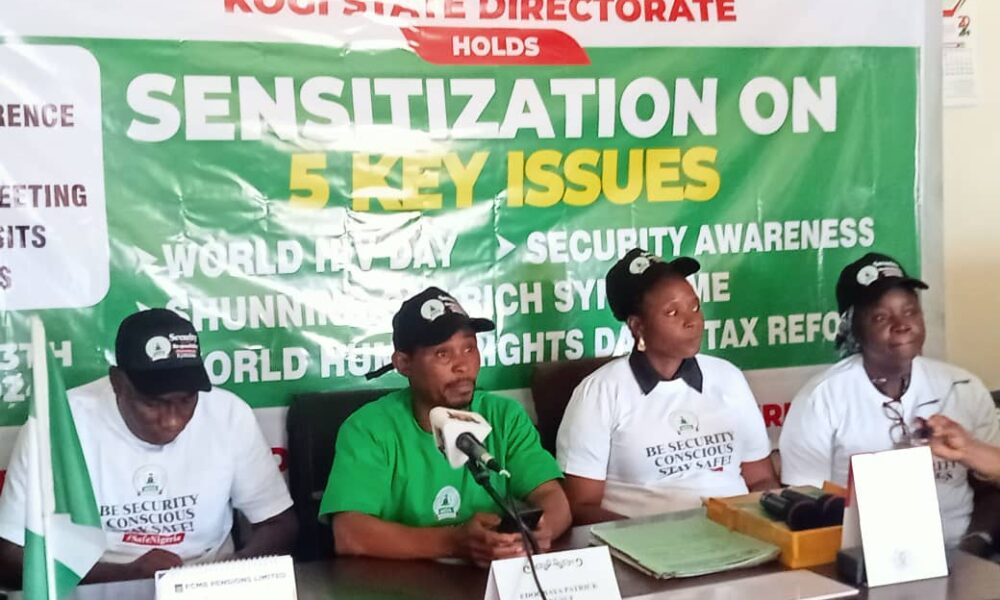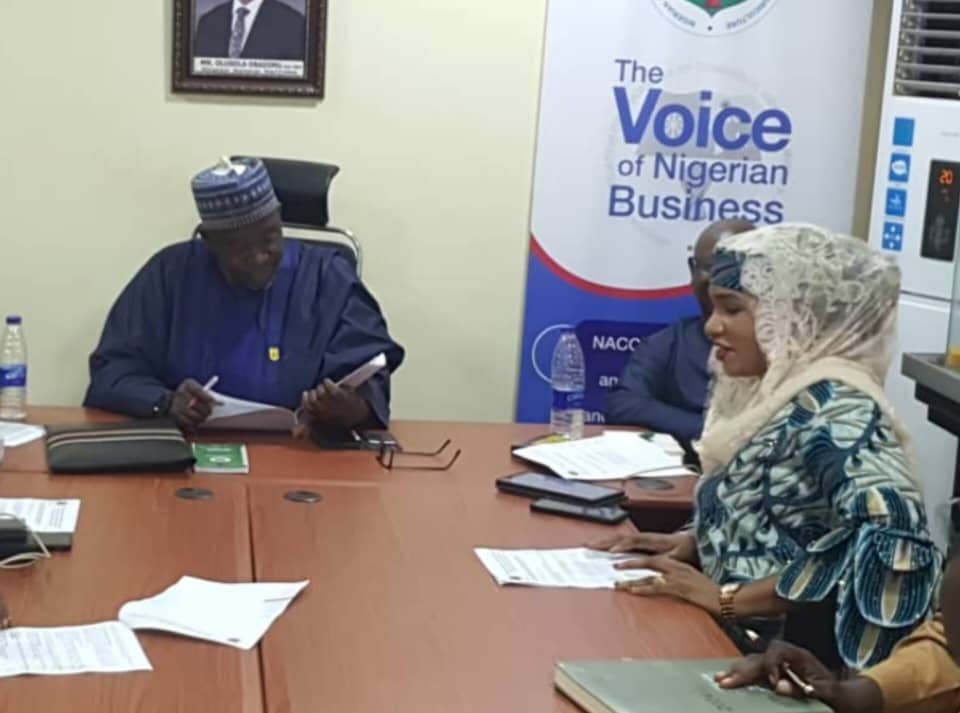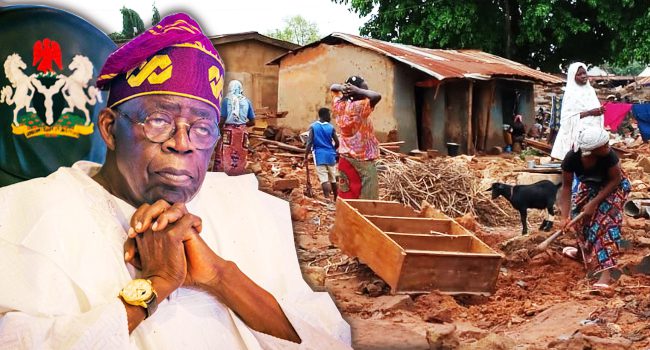By Friday Idachaba, Lokoja
The National Orientation Agency (NOA) has flagged off a nationwide sensitization campaign on five critical issues central to Nigeria’s well-being, unity, and development.
Mallam Lanre Issa-onilu, Director General of the Agency who flagged off the campaign at the weekend in Lokoja urged unity among Nigerians in their commitment to address the issues and foster a more informed, secure, and ethical society.

Represented by Kogi State Acting Director of NOA, Mr Patrick Edogbanya, the Director General highlighted the five Key national issues and the efforts the national government has made so far at addressing them.
Issa-Onilu whose speech was theme, “Promoting Awareness, Ethical Values and National Development”, pointed out that the challenges before the nation required collective action and active participation from all Nigerians.
He identified the five critical issues as issues arising from World HIV/AIDS Day; Security Awareness; Shunning Get-Rich-Quick Syndrome; World Human Rights Day and Tax Reforms.
On the burning issue of Tax Reforms, the Director General said government was taking a holistic approach to make the nation’s tax system fairer and less burdensome for citizens.
“The tax reform bills are four different bills that seek to bring everything about taxation and administration of tax in Nigeria under four different pieces of legislation”, he said.
The bills according to him include: The Nigeria Tax Bill; The Nigeria Tax Administration Bill; The Nigeria Revenue Service Establishment Bill and The Joint Revenue Board Establishment Bill, all with specific functions to ameliorate the burden of tax.
He said that the reforms will benefit everyone by eradicating double taxation and Support for Low-Income Earners as those earning very little will pay little or no taxes adding that simple and transparent processes will be adopted with introduction of new digital systems.
On the issue of HIV/AIDS, he said that aside joining the global community to raise awareness during World HIV/AIDS Day Nigeria had intensified efforts to provide free and accessible HIV testing and counseling services nationwide.
The DG added that among other efforts, the country had ensured that antiretroviral treatment remains available and accessible to people living with HIV/AIDS and went further to partner local and international organizations to combat stigma and discrimination arising from the disease.
He however, noted that the government alone cannot win this fight against HIV/AIDS and therefore, urged citizens to take advantage of services being provided by government and other entities, practice responsible health behaviours, and support those living with HIV/AIDS.
On security, Issa-Onilu reminded Nigerians that Security remains a top priority for the government adding that government was strengthening security architecture through better equipment, training, and increased funding for security agencies.
He said that government was also expanding its policing initiatives to improve collaboration between citizens and law enforcement to combat criminal activities as ge called for active support of citizens.
On Human Rights as one of the critical issues, the NOA Director General said efforts at dealing with the issue include
strengthening of legal frameworks to address human rights violations, including gender-based violence and child trafficking.
The efforts, according to him, also include establishing support centers for survivors of abuse and violence in collaboration with Civil Society as well as Promoting constitutional awareness to ensure citizens understand their rights and responsibilities.
The NOA Director General also identified the “Get-Rich-Quick Syndrome” as part of the nation’s critical issues requiring sustained sensitization campaign for Nigerians to shun in all ramifications.
Issa-Onilu said government has taken cognizance of the erosion of our age-long values and evolved measures to address the situation even as economic hardship often drives individuals toward unethical practices.
He urged citizens to reject shortcuts to wealth and embrace integrity, hard work, and the opportunities provided through government initiatives to make life better for all.
“Addressing these five key areas requires collaboration from all citizens, stakeholders, and institutions. Together, we can build a healthier, safer, and more ethical Nigeria”, he urged.




